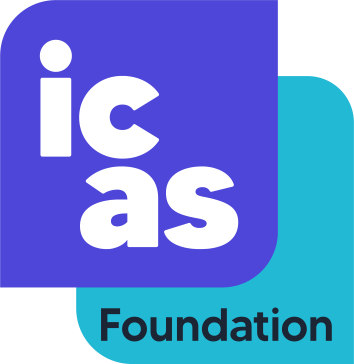Linda Jamieson, Director of the ICAS Foundation, explains how flexibility and forward-thinking ensure that students continue to receive the support they need during the Covid-19 crisis
The outbreak of the Covid-19 pandemic has brought great uncertainty to all groups in society. Students across the country’s schools and universities have been particularly affected, finding a question mark placed over their futures as many exams, internships and graduate roles were either cancelled or postponed.
The ICAS Foundation, which launched in 2012, has devoted much of its energy to reducing the burden of that looming question mark for the students it supports. Through financial support and a successful mentoring programme, the Foundation is instrumental in giving students from less advantaged communities a vital boost as they enter the highly competitive environment of accountancy and financial services.
Higher education can be an expensive undertaking. Foundation bursaries of up to £2,500 per annum, as well as the opportunity to receive mentoring from future colleagues, can make all the difference. Thanks to the generous support of ICAS members, more than 200 students have now been given the chance to fulfil their potential.
TURNING CHALLENGE INTO OPPORTUNITY
Linda Jamieson, ICAS Foundation Director, has been at the forefront of ensuring that the programme continues uninterrupted during this time of crisis. One of the main initiatives Jamieson has headed has been the launch of a development toolkit that allows students to continue enhancing and expanding their skillsets over the summer.
The toolkit highlights online testing that mimics that found during the recruitment process, courses in Microsoft Excel and Sage soft ware, interview preparation and CV advice. During its development, Jamieson also consulted previous recipients of ICAS Foundation support to ensure that current students were receiving help of maximum relevance.
“You don’t need to wait for an internship to learn some professional skills,” she explains. “Demonstrating to a potential employer that students have taken steps to develop themselves is a really positive message.”
This optimism has always been a central pillar of the work the ICAS Foundation does. While students may have had their summer plans upended, the free time left in its place should be viewed as an opportunity to demonstrate their commitment to ongoing personal development. The Foundation is aware of the need to keep students motivated and engaged during this time: “What we’re saying to current Foundation students is that there are lots of other things you can do to develop yourselves at this time. It’s not all lost.”
KEEPING IN CONTACT WITH MENTORS
The wider framework of support for students includes the mentorship programme, which puts the aspiring accountants and finance professionals in touch with those already working in the field. Introducing role models into their lives can be instrumental in demonstrating the successful career paths open to them following graduation.
Mentorship in the age of social distancing has also required fresh consideration. The result mirrors the remote working practices that have now become commonplace in living rooms and studies across the globe. “Ongoing mentor support has continued by email or telephone,” explains Jamieson. “While we do not want them meeting face to face at this time, continuing support is very important.”
Around 120 ICAS members are currently mentoring undergraduates at important stages in their development, such as the impending transition from education to the workplace for the final-year students. Members based within reach of universities in Scotland, Lancaster and Birmingham have the opportunity to get involved and apply to join the mentoring programme – more information is available on the ICAS Foundation website.
NEW INTAKE
As well as helping to guide existing students through the Covid-19 crisis, the ICAS Foundation has been busy processing applications for its 2020 cohort. The widespread cancellation of this year’s exam season has raised an unfamiliar challenge, with
the expectation that grades will now be determined by teacher assessment using preliminary results and activity across the year and validated by SQA (Scotland) or Ofqual (England and Wales). “We don’t know what exam results are going to look like this year,” says Jamieson. “A lot of the grades will be based on predictions from schools.”
Jamieson and the team have responded by ensuring that academic talent is considered alongside other pertinent factors when granting funding. Contextualising applications for funding is a standard procedure at the ICAS Foundation, but this has only been magnified by the fallout from the pandemic. “The process to award funding is fair and transparent and we will do what we can to ensure that potential students do not miss out because it’s not the student’s fault they weren’t able to sit exams,” says Jamieson.
Observing the work of the Foundation, it is evident that despite the rippling effects of the global pandemic on the lives of students, the goals of supporting, guiding and empowering tomorrow’s leaders have remained steadfast.
---------------------------------------------
The ICAS Foundation is a registered Scottish charity No SC034836.
You can support the work of the ICAS Foundation by donating, volunteering to mentor a student or providing an internship or work placement. You can also contact us to discuss a specific area where you would like to help.
This article was originally published in the ICAS CA Magazine, June 2020.
